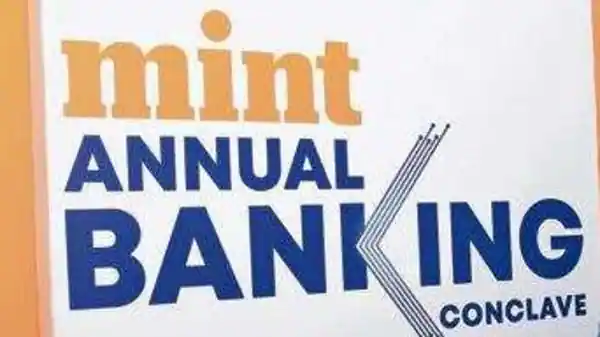NEW DELHI :
Decentralized finance, or DeFi, such as cryptocurrencies, if regulated, can help the banking sector achieve financial inclusion, industry experts said at the Mint Annual Banking Conclave 2021.
“DeFi is a parallel wave that is coming in banking. Today, 200-300 DeFi companies are offering every business model that banks offer, but without regulation,” Prasanna Lohar, head, technology, DCB Bank, said during a panel discussion.
Banks invested huge sums in technology and servers in the last 20-30 years, he added. “With the DeFi ecosystem, we don’t need all the servers. It is just a peer-to-peer network. Imagine what we can achieve by attaching better regulation to this peer-to-peer network.”
He said the goal of financial inclusion is to use the financial system so that it benefits all without incurring a lot of costs.
However, he also warned that regulation does not happen overnight. “Regulation comes with a slow or rather after a detailed study. To make proper equilibrium, they (the government) will always study cryptos and DeFi.”
DeFi is a blockchain-based financial system that does not rely on centralized authority or banks. Transactions are governed by smart contracts and users can transact through wallets and move assets without seeking permission.
Vishakha Singh, co-founder and vice president, WazirX, said regulation will be good for the industry and will not necessarily be a bottleneck for DeFi and non-fungible tokens (NFTs). “It can help in dealing with fraudulent activities.”
“It’s only the payment part of it that happens in crypto. If there is any sort of government advisory that comes into play, NFTs can reside without the support of crypto. We can always have payments enabled in fiat currency. So, we’re just hoping the government actually does come up with some transparent set of guidelines for us to work with.” she said.
The banking sector can help by participating and having an immersive experience with cryptos and NFTs, Singh said. “They can come together to formulate and advise the government on formulating some sort of guidelines.”
NFTs, or digital tokens stored on a blockchain, has also grabbed eyeballs. Unlike cryptos, which can be traded with other similar units, NFTs are unique and non-replicable. It has seen a lot of interest and adoption among the creator community, artists, musicians and even athletes.
“NFTs have turned out to be a boon and a source of income for many creators on our platform. They have turned out to be a great investment asset for collectors. We have seen anything from 10x to 2,000x profits when our collectors buy an NFT and sell it off in the secondary market,” Singh added.
Hemant Adarkar, technology advisor and resident senior fellow, IDFC Institute, said no technology is adopted in its original form, hinting at the important role upgrades and regulation can play in shaping the NFT ecosystem. However, Adarkar is not impressed with the use cases of blockchain so far and said the paradigm of cryptos is anti-banking and anti-government.
“I will be happy to see some kind of a coin, which is a crypto but backed by an asset, which is helpful for every citizen. Every technology has its limitations, including DeFi. That is why it has to be carefully studied and regulated,” he added.
Never miss a story! Stay connected and informed with Mint.
Download
our App Now!!
Credit: Source link
















 Bitcoin
Bitcoin  Ethereum
Ethereum  Tether
Tether  Solana
Solana  XRP
XRP  Dogecoin
Dogecoin  USDC
USDC  Cardano
Cardano  Lido Staked Ether
Lido Staked Ether  Avalanche
Avalanche  TRON
TRON  Toncoin
Toncoin  Stellar
Stellar  Wrapped stETH
Wrapped stETH  Shiba Inu
Shiba Inu  Wrapped Bitcoin
Wrapped Bitcoin  Polkadot
Polkadot  Chainlink
Chainlink  Bitcoin Cash
Bitcoin Cash  WETH
WETH  Sui
Sui  NEAR Protocol
NEAR Protocol  Pepe
Pepe  LEO Token
LEO Token  Litecoin
Litecoin  Uniswap
Uniswap  Wrapped eETH
Wrapped eETH  Aptos
Aptos  Internet Computer
Internet Computer  Hedera
Hedera  USDS
USDS  Cronos
Cronos  POL (ex-MATIC)
POL (ex-MATIC)  Ethereum Classic
Ethereum Classic  Bittensor
Bittensor  Ethena USDe
Ethena USDe  Render
Render  Artificial Superintelligence Alliance
Artificial Superintelligence Alliance  Arbitrum
Arbitrum  Celestia
Celestia  WhiteBIT Coin
WhiteBIT Coin  Dai
Dai  Filecoin
Filecoin  MANTRA
MANTRA  Stacks
Stacks  OKB
OKB  Bonk
Bonk